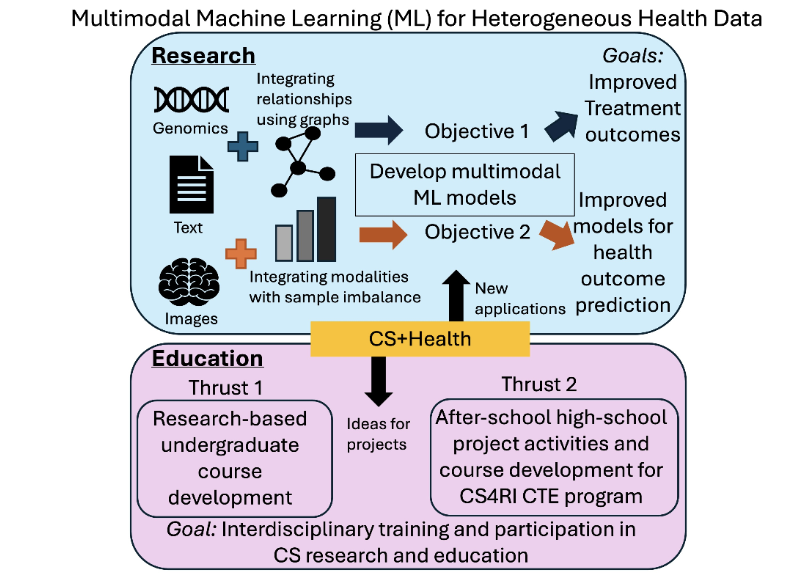 The NSF CAREER Program “offers the National Science Foundation's most prestigious awards in support of early-career faculty who have the potential to serve as academic role models in research and education and to lead advances in the mission of their department or organization.”
The NSF CAREER Program “offers the National Science Foundation's most prestigious awards in support of early-career faculty who have the potential to serve as academic role models in research and education and to lead advances in the mission of their department or organization.”
Ritambhara Singh’s CAREER research project will focus on integrating heterogeneous health data using graph-based methods in order to design predictive and explainable computational methods that will improve individual patient treatments.
“Understanding and improving human health is a complex challenge because it involves multiple types of information, including medical records, brain scans, and genetic data. Each type of information provides a distinct piece of the puzzle. However, these pieces don’t always fit together easily because they come in different forms and quantities. These differences make it challenging for doctors and researchers to obtain a comprehensive understanding of a person’s health and determine the most effective treatment.
This research project aims to develop new computational methods that can combine all these types of health information to better predict diseases and design effective treatments tailored to each individual. By improving how we use these diverse health data, this research could lead to earlier diagnosis, more personalized care, and ultimately better health outcomes for patients. Additionally, the project will involve students in this work to teach them how to use these advanced tools, helping to build a future workforce capable of creating the technology that tackles complex health challenges.

The project will develop graph-based methods to integrate gene and drug relationships for counterfactual explanations and improved treatment design using Large Language Models (LLMs) and knowledge graphs. It will also create a framework to handle sample imbalance across modalities, learn joint representations, and apply explainability techniques for multimodal health outcome predictions.”
In addition, this research will be closely linked with interdisciplinary educational initiatives, integrating novel multimodal approaches into student training and outreach programs, thereby fostering a synergy between research innovation and workforce development. As a part of the research grant, Ritambhara plans to create an interdisciplinary Machine Learning in Health and Life Sciences course at Brown, focusing on multimodal data and explainability to boost research skills, and eventually partner with Rhode Island high schools to offer CS+Health projects and courses that increase student participation in computer science programs.
Congratulations to Ritambhara Singh on this momentous grant!
